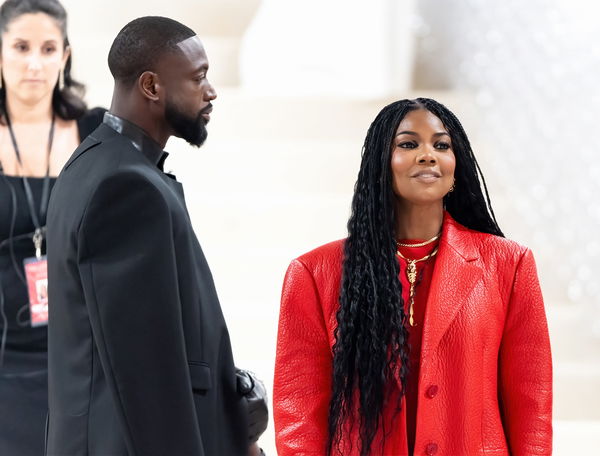“Light Skin F**cker Came Into the League”: LeBron James on Stephen Curry Changing 1 Big NBA Tradition Like Pat Mahomes

Follow Us

via Imago
Image Credits: Imago
LA star LeBron James and former NBA sharpshooter JJ Redick are set to change the talk show game with their new podcast, ‘Mind the Game.’ Unlike typical talk shows that focus on subjective debates, this podcast offers diehard basketball fans pure, intricate conversations about players and games. Airing their first episode today, hosts James and Reddick dived directly to a simple question, “What makes a great basketball player?” As they explored the subject of influence in the NBA, they placed the spotlight on Stephen Curry and Allen Iverson as game-changers. Reddick mentioned, “With the three-ball, we’ve seen it so often now, no lead is really safe.”
What caught most viewers’ attention was the 3-point revolution that Stephen Curry and the Golden State Warriors pioneered in the early 2010s. The 39-year-old remembered the time when he entered the league and said, “… I played no minutes my first two years. But you know, what if we had a 19-point lead going to the fourth, I might get all 12 minutes of garbage time…” LeBron and JJ Redick both agreed that teams would clear their benches 15 years ago if they were leading the game by double-digit points. However, that can’t happen in the modern NBA.
King James provided the reason as to why that can’t happen today. James said, “I believe in 08/09, whenever that little light-skinned f*cker came in the league. He changed that whole narrative. He single-handedly changed the no lead is safe. It’s like Pat Mahomes right now.” The Chiefs QB at 28 is already inching toward the record set by Tom Brady. Mahomes now has 3 Super Bowls, 2 league MVPs, 3 Super Bowl MVPs, and 6 Pro Bowl honorees in just 7 NFL seasons.
ADVERTISEMENT
Article continues below this ad
It was interesting for JJ Reddick to see how Mahomes got into the picture as a comparison. However, he said he didn’t think anyone else influenced the game as much as Curry did. James agreed instantly, “When it comes to influence since I’ve been watching the game… Steph and Allen Iverson are the two biggest influential guys in our game since I’ve been watching and covering it. One, they’re 6’3″/6’4″ if you want to look on the back of the basketball card, you know you always a lot taller on the back of the back of the basketball card.”
King James mentioned that Curry and Iverson broke stereotypes, owing to their normal human size but had extraordinary abilities. Kids could see themselves in these players. The Lakers star said, “Allen Iverson and Steph., they were just so relatable, and kids felt like they could be them. They were guys that was not always counted on, they were small in stature, and they just defied the odds… Those two are the two most influential when you play the game, how they changed the game, and the [impact on] kids, those are two guys that you just wanted to watch every single night.”
James entered the podcast world along with ESPN analyst JJ Redick to innovate sports media. The hosts are the producers themselves for the show with their two companies, James’ Uninterrupted and Redick’s ThreeFourTwo Productions. The very first episode released on YouTube gained thousands of views within just an hour of uploading it. LeBron James and JJ Redick’s insights about the players and the games have given the viewers an idea of how basketball-centric the show is.
Stephen Curry’s impact on the league cannot be understated. The NBA witnessed a dimensional shift during the initial stages of Curry’s career. However, for the longest time, it looked like recurring ankle injuries hampered Curry’s burgeoning career.
Stephen Curry’s three-point revolution transformed the NBA landscape
The 36-year-old simply revolutionized the offensive and defensive strategies and tactics within the league. The game went from an isolation-heavy style of play to a team-oriented, ball-movement style of play within just a couple of seasons. Of course, teams like the 7-seconds-or-less Phoenix Suns and the San Antonio Spurs played a similar brand of basketball before. But, it was Curry and the Warriors’ emphasis on three-point shooting that truly transformed the modern game, and statistics back this up.
Between 1979 and 1991, NBA players collectively made 28,926 three-pointers. Remarkably, during the 2022-23 season alone, teams and players surpassed this total, recording a staggering 30,359 successful shots from downtown. As a result, the average distance from the rim has climbed from 12.2 feet (in Curry’s rookie season) to 14.3 during the 2021-22 season.
ADVERTISEMENT
Article continues below this ad
Trending

“You 7’4, I’m 6′10”: Dwight Howard Responds After Shaquille O’Neal Gets JJ Redick’s Verdict on Orlando Legacy
May 07, 2024 01:30 PM EDT

Days After $800K Loss, Bronny James Spotted at Shaquille O’Neal’s Daughter Me’arah’s 18th Birthday Bash
May 05, 2024 04:35 PM EDT

“Bron Is a Gift & Curse”: LeBron James Humiliating Darvin Ham in Leaked Video Is Excusable, Claims NBA Legend
May 08, 2024 06:00 AM EDT

Debates Over Dwyane Wade’s Wife Gabrielle Union’s Questionable Met Gala Dress Divides the Internet
May 07, 2024 04:56 AM EDT

“Gonna Kill Us”: Bronny and Bryce James’ Fear Comes True As LeBron & Savannah Catch Sons Red Handed
May 08, 2024 03:31 AM EDT
Get instantly notified of the hottest NBA stories via Google! Click on Follow Us and Tap the Blue Star.

Follow Us
View this post on Instagram
The pace of the game has also significantly increased as a ripple effect of Curry’s 3-point revolution. Before Stephen Curry entered the league, the average pace was around 90. However, it has risen to an average of 98 in recent seasons. The increase in the pace of NBA games has resulted in more possessions and led to more offensive basketball. Just a decade ago, the Clippers had the highest offensive rating by a team in 2013-14, with a 112.1 rating. However, by standards of the 2023-24 season, this rating would rank as the sixth-lowest offensive performance.
ADVERTISEMENT
Article continues below this ad
Some people hate Stephen Curry for pioneering the 3-Point revolution, some love him. But no one can argue with the impact that Curry has had on the NBA. What are your thoughts? Let us know in the comments below!
Read More: “He Don’t Want LeBron (James) to See”: Shannon Sharpe Fires Back Amid Stephen Curry Fanboying Claim
Edited by:

Saumya Khanduja


